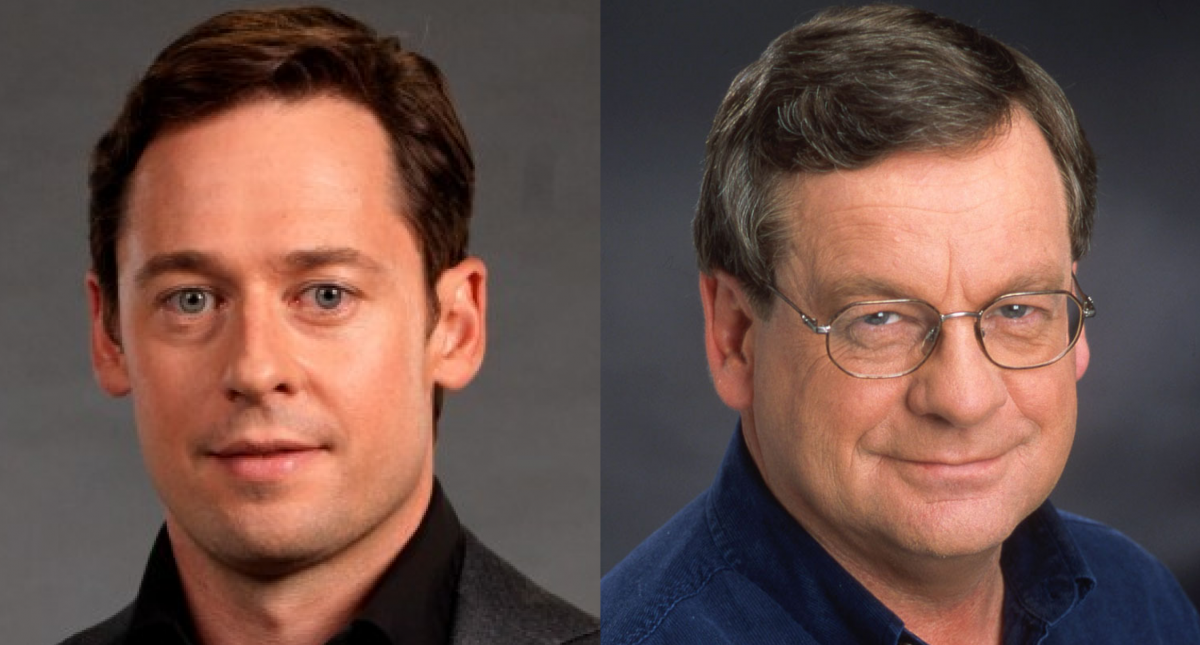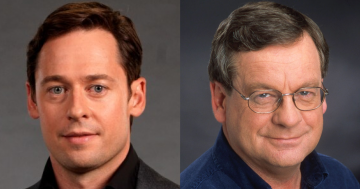
Nick McKenzie and Chris Masters: their ground-breaking work on Ben Roberts-Smith has changed our understanding of the war in Afghanistan. Photos: Nine Entertainment.
For some time, media companies around the globe have been hurtling towards a crossroads, fretting about whether to indicate left or right or to plough on straight ahead.
Many have dipped their toes in the shark-infested waters already, spending millions of dollars on new digital news formats, bolstering their social media presence.
It’s a challenging phase. All the numbers indicate people are relying less and less on the traditional old-school forms of journalism. When was the last time you saw someone sitting on a train or a bus reading a newspaper? Or sitting at a café, sipping on a latte and flicking through the latest newspaper or magazine?
When did you last sit down and watch a television news bulletin? For some time now, it’s not been ‘appointment TV’, with people able to stream news bulletins at a time that best suits them on a device that works best for them.
It’s all natural progression; as consumers, we are now spoiled for choice. But the big question is – are we still going to get the very important top levels of journalism that are so essential in holding those in power to account, in raising the voices of the downtrodden, and in keeping people informed about what is happening around the world?
There’s no end of social and digital media whiz kids who can spend hours chewing your ear off telling you what people want. It usually revolves around eye-catching social media posts, fewer politicians, less bad news.
They’ll tell you no one wants to hear, watch or read about what is happening in Ukraine. In this brave new world, where page clicks and social media shares and likes are driving the direction of news coverage, this is not a great development at all.
You will have seen examples of it already, I am sure. The dumbing down of stories, the eye-catching headline or picture which bears little or no resemblance to the attached story. Daily news meetings now almost certainly feature a presentation from a digital media geek who will breathlessly inform all those assembled what is trending, what is going viral, and which stories generate no interest.
Quality journalism does not come cheap. It costs time, money and resources. To recoup these costs, many media outlets erect paywalls. But sadly, many people aren’t willing to pay. Online it is often celebrated if people find a way to share stories from behind a paywall for free.
Just two weeks ago, we honoured the incredible work of investigative journalists Nick McKenzie and Chris Masters and their coverage of the Ben Roberts-Smith saga. It was a high watermark for our profession at a time when, sadly, there are more low watermark moments than examples of media brilliance.
This brings us back to the crossroads.
Media proprietors are faced with tough decisions, like, do they keep the experienced, well-connected journalists who maybe are a bit slow to embrace new technologies or replace them for the same price with two or three whiz kids who can understand algorithms and social media trends?
Do they continue to invest in coverage of stories that may not be trending on social media but are important to the fabric of who we are, our place in the world, and how the world can or should be much fairer for everyone?
Ultimately, it’s a vicious circle, where advertisers only spend their money on sites that attract a lot of traffic and where traffic is driven by clickbait. Who would want to sit behind the wheel as we arrive at these crossroads?













